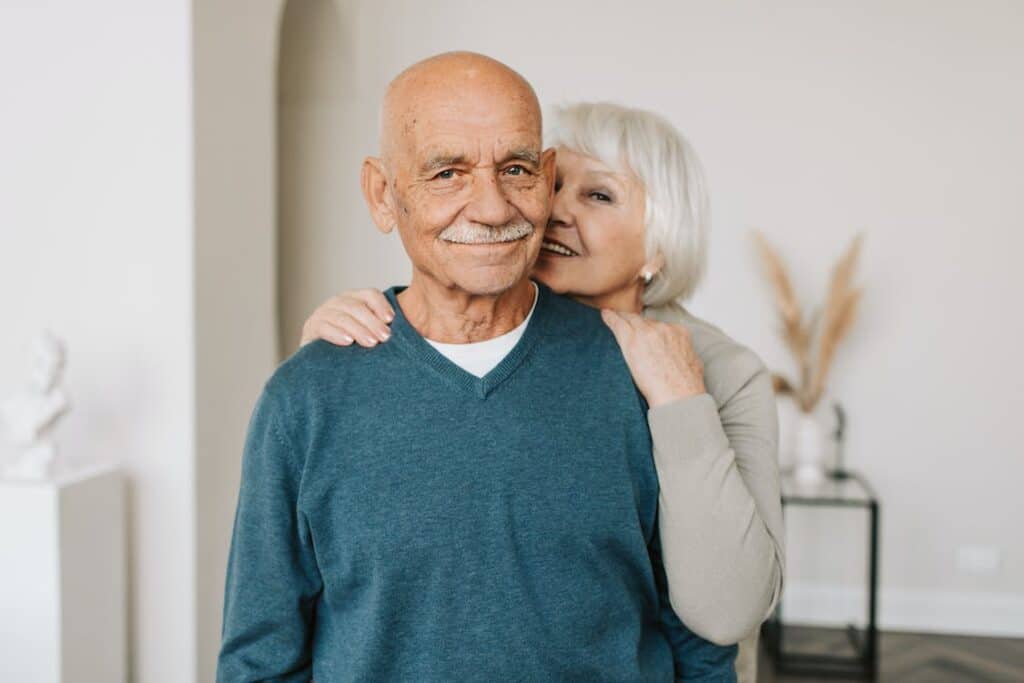Navigating assisted living can be a complex transition for older adults and their families. One of the most effective ways to ensure a positive and dignified experience is by fully understanding and protecting elderly rights. These rights ensure that seniors maintain autonomy, receive respectful care, and live in safe and empowering environments.
At Westmont of Chico, our approach is rooted in respect for every individual’s preferences and legal entitlements. Whether you’re seeking clarity on who qualifies for the Older American Act or aiming to better understand the 10 rights of an elderly, knowing your rights means being prepared to advocate effectively.
Understanding Elderly Rights in Assisted Living
When moving into an assisted living facility, seniors are entitled to specific protections designed to preserve their dignity, independence, and safety. These elderly rights are not just ethical considerations—state and federal laws often back them.
Some of the most important rights include the ability to make personal decisions, privacy in medical and personal care, and living in a secure environment. Resources like resident empowerment are crucial tools for ensuring every senior’s voice is heard.
Key Rights of Seniors in Assisted Living Facilities
Whether you’re a resident or family member, it’s vital to understand the 10 rights of an elderly person in assisted living. These rights act as a foundation for fair treatment and personal agency.
Right to Privacy
Privacy is a cornerstone of independence. Seniors have the right to control who enters their living space and how their personal information is handled. Promoting privacy helps support a person’s self-worth and autonomy. Learn more about privacy and dignity protections here.
Freedom of Choice
The right to choose daily routines, meals, activities, and care preferences is crucial for maintaining personal autonomy. Here are three areas where choice is essential:
- Personal Care Plans tailored to individual needs
- Lifestyle and Social Activities aligned with interests
- Room or Suite Selection based on comfort and preferences
This is one of the most fundamental elderly rights that enhances overall well-being.
Security and Safety
Seniors deserve to feel protected within their communities. Trained caregivers, emergency protocols, and visitor policies are just some measures designed to foster security. At Westmont of Chico, health emergencies are managed swiftly with preparedness and compassion.

Legal Protections Under the Older Americans Act
So, what does the Older American Act do? Passed in 1965, the Older Americans Act (OAA) ensures access to essential services like nutrition programs, in-home support, and protection of elder rights. It was a pivotal piece of legislation that still plays a vital role today.
Understanding who qualifies for the Older American Act is important. Typically, individuals aged 60 and older qualify for OAA services, which may include meals, transportation, legal assistance, and caregiver support. Learn more from the National Council on Aging (external).
Other relevant protections include:
- Nursing Home Reform Act (NHRA) – Ensures protection from neglect in long-term care
- HIPAA – Preserves privacy regarding medical records and healthcare information
These laws reflect the government’s recognition of the critical need to protect elderly rights.
The Role of Assisted Living Facilities in Upholding Elderly Rights
Assisted living communities are not only care providers—they are advocates for senior dignity. Staff are trained to respect the legal and personal rights of each resident, ensuring they live with dignity and freedom. Promoting advocacy in assisted living is part of the mission at Westmont of Chico.
This includes:
- Transparent communication with residents and families
- Ongoing training on rights and responsibilities
- Respecting residents’ choices and individuality
Through strong policies and ethical standards, facilities play an essential role in safeguarding the dignity of every senior.
Family Involvement in Advocating for Elderly Rights
Family members are powerful allies in preserving elderly rights. Whether you’re questioning a policy or offering emotional support, your involvement can make a world of difference.
Family Education on Rights
Understanding what does the Older American Act do can help families leverage the support systems available to seniors. Attending workshops and staying informed ensures families know how to act when something feels off.
- Attend community forums and webinars
- Read materials from reliable sources like Justice in Aging (external)
- Build relationships with facility staff to foster collaborative care
Open Communication Channels
Clear communication between staff, residents, and families builds trust. Encourage regular check-ins, voice concerns early, and document important discussions.
Proactive Advocacy Strategies
When issues arise, it’s important to take thoughtful and informed action. Here’s how families can support and uphold the 10 rights of an elderly person:
- Stay Informed: Know your loved one’s rights under the OAA and facility-specific policies
- Be Present: Frequent visits foster transparency and help identify concerns early
- Use Community Resources: Local ombudsman programs can help mediate disputes

Promoting Education and Awareness of Elderly Rights
A community that understands elderly rights is better equipped to protect and uplift its senior members. Hosting or attending events, sharing information, and engaging in public discourse help normalize conversations about dignity, safety, and independence in aging.
Encourage participation in:
- Elder Rights Awareness Month activities
- Workshops on legal protection for seniors
- Resident Council meetings to support transparency
Knowledge empowers both residents and caregivers to advocate for ethical, person-centered care.
Your Voice Matters: Protect Elderly Rights Today
Whether you’re a senior or a family member, understanding elderly rights is key to creating a safe, respectful, and empowering assisted living experience. From legal protections like the Older Americans Act to day-to-day rights like privacy and choice, every layer of support contributes to a life lived with dignity.
At Westmont of Chico, we are committed to honoring those rights every step of the way. If you have questions about how we support our residents or want to see our care in action:
👉 Schedule a tour today or call us at 530-767-3886.
Together, let’s build a brighter future rooted in respect, advocacy, and the unwavering protection of our elders’ rights.
How Do The Costs Of Moving Into A Quality Senior Care Community Compare With The Costs Of Staying At Home?Compare The Costs of Senior Living vs Staying at Home
Frequently Asked Questions
What are the rights of the elderly in the United States?
Elderly individuals in the United States have specific rights designed to protect their dignity, safety, and independence. These include the right to make personal and medical decisions, access quality healthcare, and live free from abuse, neglect, or exploitation. Federal laws like the Older Americans Act (OAA) help ensure access to essential services such as nutrition, housing, and caregiving support. Additionally, seniors have the right to participate in community life and to be treated with respect in all healthcare and social service settings.
What is the elder law in the United States?
Elder law in the United States focuses on the legal issues affecting older adults, including estate planning, healthcare, guardianship, and the prevention of elder abuse. Attorneys specializing in elder law help seniors protect their assets, plan for long-term care, and ensure their wishes are honored. This area of law also encompasses guidance on Social Security, Medicare, and Medicaid. Its goal is to preserve seniors’ financial stability and personal autonomy while safeguarding their rights.
How does America view the elderly?
In America, the elderly are generally respected for their wisdom, life experience, and contributions to society. However, attitudes toward aging can vary, with some communities emphasizing independence and others promoting family-based care. Programs like Medicare, Social Security, and senior advocacy organizations reflect the nation’s commitment to supporting its aging population. In recent years, there has been a growing effort to combat ageism and promote active, purposeful aging across all communities.
What age is considered elderly by the US government?
The U.S. government typically considers individuals aged 65 and older as elderly. This benchmark aligns with eligibility for programs like Medicare and Social Security benefits. However, other definitions may apply depending on the context—some agencies or studies may define “elderly” as beginning at age 60. Ultimately, the classification focuses on access to benefits, healthcare, and social support rather than physical ability or vitality.








